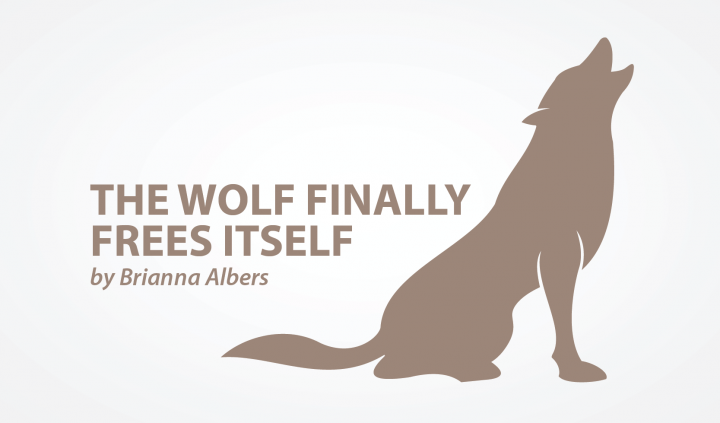The Stories I Share Make Me Rare
Written by |

I’ve been thinking about Rare Disease Day on Feb. 29 for weeks. I’ve been trying to figure out how exactly I’m rare, and in what ways, and how I might address all the weird, rare, exhilaratingly absurd parts of me that make me … me.
I could write about surgery. Birthdays in the hospital. Pneumonia shots. My service dog, who I’ve never mentioned in any of my columns. Lexi was a chocolate Lab with what I suspect was an undiagnosed anxiety disorder. She didn’t know how to relax. She chewed her toys until her gums bled. She loved food more than anything and went ballistic when people asked her if she was hungry.
I loved that dog. But she was big and energetic, and I was a teen with an undiagnosed mood disorder who didn’t want to leave the house. She could open doors, pick up things I dropped, and pull my controller out by tugging on a rope tied to my armrest. We went on walks together. She went to school with me for a while, which made me popular for all the wrong reasons.
I was a junior in high school when Lexi pulled out my G-tube. I was sitting in the family den playing “The Sims 3” on a laptop I would eventually destroy by downloading an obscene amount of game mods. It didn’t hurt when Lexi pulled out my G-tube, though it probably should have. Her paw got caught on the feeding tube, and as she trotted away, I thought, “Huh. Something doesn’t feel right.”
My dad was in another state at the time. I called for my mom and said as nonchalantly as I could, “I think Lexi pulled my tube out.” She lifted my shirt and blanched. There was a hole in my stomach, an empty hole, a hole my mom never wanted to see in all her 40-something years.
My dad drove home. It was a Sunday night, and I had school the next day, so he tried to put the tube back himself. Needless to say, it was a futile endeavor. By the time he got home, the hole in my stomach had more or less closed up. He was tired and I was crying and my mom wanted to go to bed.
We went to the ER. The hole in my stomach had closed up, so we could barely get a catheter in. I was able to continue with my routine tube feedings, but we had to schedule a surgery for later that week.
When it comes to surgery, I have big “T” trauma, mostly because of my spinal fusion. But there’s a special place in my animal brain for that operation in particular. It should’ve been easy. Simple. Uncomplicated. But they couldn’t find a vein, which means they couldn’t administer the anesthesia, which means I stared angrily at the operating lights as they poked and prodded. My dad stood to one side, arms crossed over his chest, ever the protector.
I didn’t like the surgeon. He was a decent guy, probably, but I have had an illogical bias against male surgeons since 2002, and I had no intention of changing my ways with my arms full of bruises. He tried to distract me by talking about “The Odyssey,” which I was reading for my advanced placement language class. Unfortunately for him, I did not like “The Odyssey,” which meant I was largely stoic and unhelpful.
In the end, they gave me laughing gas. I did not laugh. I stared fuzzily at my dad’s face, and when the surgeon shoved the G-tube through the thin lining of my stomach, I screamed.
We gave Lexi away. She was a good dog, and I don’t blame her for pulling my G-tube out. But she needed attention I was physically incapable of giving her. My dad knew a guy who wanted a dog. He had grandkids, which was the deciding factor in my mind — Lexi was born to be surrounded by adoring children. I haven’t seen her in years, but I know she’s happy, and undoubtedly on the heavier side.
I take great joy in telling people that, once upon a time, my dog pulled my G-tube out. Their reactions are priceless, and it’s not a story you hear every day. I have a hole in my stomach, and if you step on the tube it comes right out. It’s like a magic trick!
Maybe I’m not rare so much as my stories are.
***
Note: SMA News Today is strictly a news and information website about the disease. It does not provide medical advice, diagnosis, or treatment. This content is not intended to be a substitute for professional medical advice, diagnosis, or treatment. Always seek the advice of your physician or other qualified health provider with any questions you may have regarding a medical condition. Never disregard professional medical advice or delay in seeking it because of something you have read on this website. The opinions expressed in this column are not those of SMA News Today, or its parent company, Bionews Services, and are intended to spark discussion about issues pertaining to spinal muscular atrophy.




Leave a comment
Fill in the required fields to post. Your email address will not be published.